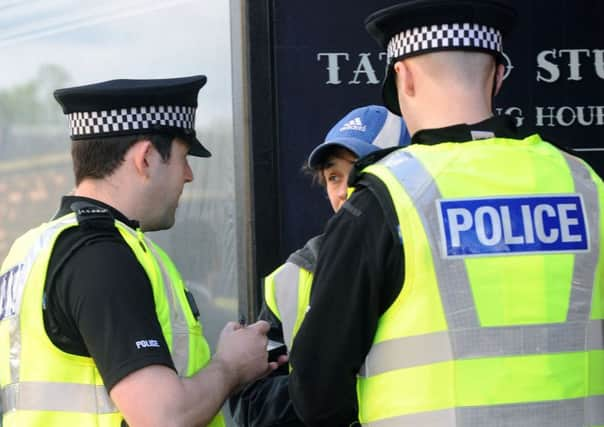School visits to promote stop and search under fire


Lib Dem justice spokeswoman Alison McInnes raised concerns after officers from Police Scotland spoke to almost 900 children and young people on visits to secondary schools in Fife, colleges in the area and St Andrews University.
The visits were part of a pilot project aimed at improving public confidence in the use of stop-and-search by officers.
Advertisement
Hide AdAdvertisement
Hide AdA report by academics at Dundee and Edinburgh Napier universities has already suggested police used the visits as opportunities to promote the controversial practice, saying one purpose seemed to be “promoting stop-and-search itself”.
Police officers visited 19 high schools, three colleges and St Andrews University, speaking to a total of 879 pupils and students on 54 visits, according to papers released to the Liberal Democrats under freedom of information laws.
These said the “aim of the engagement is to speak with young persons who have been the subject of stop-and-searches and obtain feedback from them” about the practice, adding that “if no persons make themselves known as stop-and-search subjects, engagement should be done and opinions/views on stop-and-search should be obtained”.
Officers were told there “is no specific script for this engagement”, allowing them to be “natural and positively engage with the young people within these educational institutions”.
But Ms McInnes claimed there was “little record” of what took place during the visits, questioning if officers told youngsters about their right to decline “so-called consensual searches”.
She said: “Far from building constructive relationships with young people, it seems that hundreds of young people in Fife risked becoming guinea pigs in an exercise aimed at normalising so-called consensual stop-and-search.
“Officers weren’t given a script by their bosses and there is little record of what happened at each of the 54 visits. There is no suggestion that police chiefs were interested in enlightening children about their rights during these sessions and the evidence indicates that the officers tasked with gathering feedback also promoted the apparent need for stop-and-search.
“Were children told of their right to decline so-called consensual searches? Did officers explain that the majority of searches conducted by the police aren’t based on any suspicion of wrongdoing?”
Advertisement
Hide AdAdvertisement
Hide AdChief Superintendent Angela McLaren said: “Fife Division embarked upon this pilot initiative to ensure the use of stop and search is transparent, meets the expectations of the public, captures good practice whilst informing policy and practice and crucially ensures the use of this tactic is lawful, ethical, proportionate and effective.
“All engagement sessions were recorded and the anecdotal evidence formed part of the Scottish Institute for Policing Research (SIPR) review of the project which went on to inform the recommendations. The SIPR study outlines a number of recommendations from the research, which are informing the development of future policy and practice around stop and search across Scotland.”